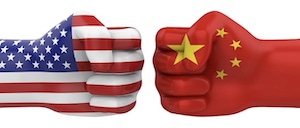China Section 301 Litigation: CIT Issues Order: The Tariffs are Here to Stay
By Vicky Wu, Partner, and Brandon French, Associate Attorney
The long-awaited decision by the Court of International Trade (“CIT”) was not the outcome thousands of importer companies were hoping for. On March 17, 2023, the CIT determined that the United States Trade Representative (“USTR”) legally followed Section 307 of the Trade Act of 1974 and the Administrative Procedure Act (“APA”) when the List 3 and List 4A Section 301 China tariffs were put into effect. This decision by the CIT comes after months and months of back and forth between both parties.
As background, on April 1, 2022, the Court held that the USTR had the authority to impose Section 301 tariffs on List 3 and 4A products, but held that the USTR failed to adequately explain its rationale for the tariffs. As a result, the Court issued a Remand Order requiring the USTR to provide further explanation regarding its rationale for imposing the tariffs. On August 1, 2022, within the 90-page remand results, the USTR provided detailed information at a heading-by-heading level explaining why certain items were included within the List 3 and List 4A tariffs, and why others were not. As one example, the USTR indicated that certain consumer electronics were removed from the tariff list due to a number of factors, including but not limited to:
- Additional duties would put U.S. companies, who compete with third-country manufacturers and use Chinese components, at a disadvantage;
- Proposed tariffs would make internet enabled technologies less affordable;
- Additional tariffs could lead to national security and privacy risks if U.S. consumers switched to cheaper Chinese devices that store user information in China; and
- Shifting production from China was generally not financially feasible for most companies, especially small start-ups.
Consumer electronic products are just one of many examples included within the USTR’s remand results.
Plaintiffs responded to the USTR’s remand results on September 14, 2022 by filing comments stating that the USTR failed to further justify the tariffs and used information that was “post hoc” (i.e., not known until after the tariffs were published). Additionally, Plaintiffs argued that the USTR failed to address major policy concerns, including damage to the economy via 301 tariffs, the efficacy of the tariffs, and possible alternatives to the tariffs that would achieve the same goal.
On November 4, 2022, the Government responded to Plaintiffs’ comments, followed by Plaintiffs’ rebuttal approximately one month later. After receiving the USTR’s remand results and comments from both parties, the CIT held oral arguments on February 7, 2023 to listen to each party’s position and focus on the adequacy of the USTR’s remand results.
Back to the present-day decision, after carefully considering the position of both parties, the CIT ultimately ruled in favor of the government and held that the USTR provided an adequate explanation of the tariffs. Specifically, the Court found that: (i) the USTR’s remand results demonstrated USTR’s adherence to the specific direction of the President, (ii) the USTR accounted for concerns regarding the potential harm to the U.S. economy within the context of the statutory factors it was required to consider and adequately explained how it did so, (iii) the USTR’s statements were responsive to commenters seeking to dissuade USTR from imposing any increased duties, and (iv) the USTR adequately explored alternatives to the tariffs, such as initiating a dispute at the World Trade Organization, requesting consultations with China, and proceeding with negotiations, etc. As a result, the Court found that the USTR complied with the Court’s remand order and supplied the necessary explanations to support the imposition of Section 301 List 3 and 4A duties.
So, what does this mean for the thousands of companies that were involved in the Section 301 litigation? The next logical step for Plaintiffs will likely be to appeal the recent decision by the CIT. If that occurs, it is not unrealistic for the litigation to continue throughout this year and even into 2024. While the decision last week was not favorable to Plaintiffs, importing companies should continue to monitor the status of a likely appeal to see if the determination is different in the appellate court. Companies should also consider reviewing their import data to determine if any duty mitigation options are available (Section 301 exclusions, tariff engineering, etc.).
If your company has any questions relating to the Section 301 litigation, or would like to discuss potential duty mitigation options related to the tariffs, please contact either Vicky Wu ([email protected]) or Brandon French ([email protected]).
https://www.braumillerlaw.com/author/vicky/
https://www.braumillerlaw.com/author/brandonfrench/

























